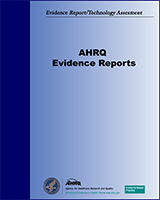NCBI Bookshelf. A service of the National Library of Medicine, National Institutes of Health.
Mulrow C, Lawrence V, Ackermann R, et al. Garlic: Effects on Cardiovascular Risks and Disease, Protective Effects Against Cancer, and Clinical Adverse Effects. Rockville (MD): Agency for Healthcare Research and Quality (US); 2000 Oct. (Evidence Reports/Technology Assessments, No. 20.)
This publication is provided for historical reference only and the information may be out of date.

Garlic: Effects on Cardiovascular Risks and Disease, Protective Effects Against Cancer, and Clinical Adverse Effects.
Show detailsEquivalency of Garlic Preparations
Equivalency of different garlic preparations is unclear; studies that estimate equivalency for different constituents are warranted. This is an essential step before conducting more large trials with cardiovascular outcomes. The exact or standardized content of preparations and the amount of release of the main constituents under simulated gastrointestinal dissolution conditions should be specified.
Proper Placebos
Garlic supplements, including ones labeled as odor free, may produce easily detectable breath or body odor that may impair the ability to conduct double-blind trials. Placebos that are designed to simulate this odor should be designed and tested.
Cardiovascular-Related Effects
Studies in humans with lipid and antithrombotic outcomes are promising, but they are limited by unclear randomization procedures, short durations, and unclear ability to blind active treatment administration and outcome assessments. More studies with similar design features are not needed. Rather, a few well-designed trials of longer duration that are powered to assess morbidity and mortality outcomes, as well as lipid and thrombotic outcomes, are needed. Such trials should attempt and assess adequacy of blinding.
It is unclear whether particular preparations, constituents, and/or dosages of garlic are superior to others in affecting physiological outcomes. Comparative studies of different preparations, constituents, and dosages with both intermediate physiological and clinical outcome measures are warranted. Comparative studies with alternative agents, such as 3-hydroxy-3-methyl-glutaryl (HMG) co-reductase inhibitors (statins), also are warranted.
Cancer-Related Associations
Scant data, primarily from case-control studies, suggested, but did not prove, that garlic consumption is associated with decreased odds of laryngeal, gastric, colorectal, and endometrial cancer and adenomatous colorectal polyps. More case-control and cohort studies that evaluate such associations, as well as more studies evaluating associations with other cancer types, are needed. Future studies should aim for more precision in assessing types, formulations, and constituents of garlic that are consumed. The frequency and the duration of consumption also warrant more precise quantification. Sampling techniques that allow greater levels of garlic consumption to be represented should be emphasized as some existing studies are limited by population samples that consume very small quantities of garlic. Consideration should be given to mounting more trials, such as the ongoing Chinese trial, that evaluate the protective effects of different garlic preparations in persons with very high risk of cancer or precancerous lesions. Future systematic reviews in this area should search more broadly for diet-related population studies and aim to place findings that are specific to garlic in a broader context that takes into account findings regarding other Allium-containing vegetables as well as other foods.
Adverse Effects
The frequency and severity of adverse effects that are related to garlic should be quantified. Whether adverse effects are specific to particular preparations, constituents, and doses of garlic should be elucidated. Whether certain adverse effects are unique to particular types of garlic exposure (e.g., inhaled, oral, or topical) should be clarified.
The most serious potential adverse effects of garlic that have been cited are complications related to bleeding. Whether particular preparations and constituents of garlic affect physiological parameters related to bleeding such as platelet adhesiveness, prothrombin time, and partial thromboplastin time, as well as whether particular preparations lead to clinically significant bleeding, warrants more study.
Interactions
As the most promising results of garlic supplements relate to potential decreases in lipids and many persons are already taking medications for dyslipidemia, interactions between garlic supplements and these medications should be evaluated. Whether there are particular subsets of persons, such as those who are taking warfarin or other antithrombotic agents who are particularly susceptible to bleeding related to garlic, also warrants study.
- Future Research Directions - Garlic: Effects on Cardiovascular Risks and Disease...Future Research Directions - Garlic: Effects on Cardiovascular Risks and Disease, Protective Effects Against Cancer, and Clinical Adverse Effects
- Evidence Tables - Garlic: Effects on Cardiovascular Risks and Disease, Protectiv...Evidence Tables - Garlic: Effects on Cardiovascular Risks and Disease, Protective Effects Against Cancer, and Clinical Adverse Effects
Your browsing activity is empty.
Activity recording is turned off.
See more...